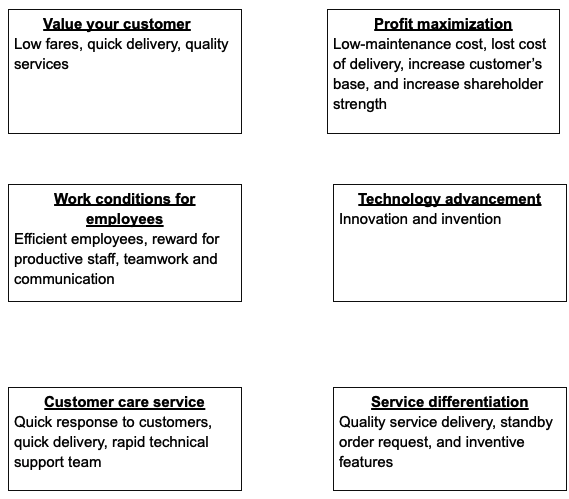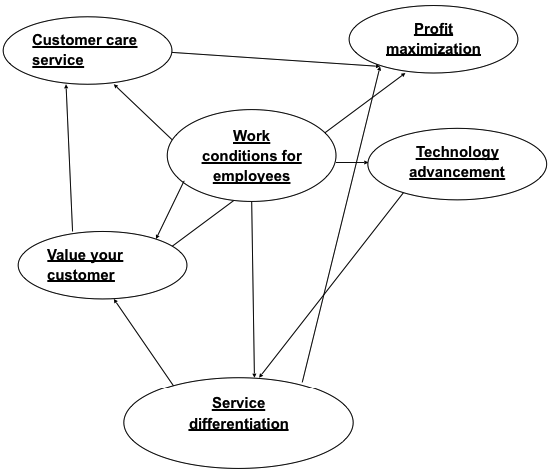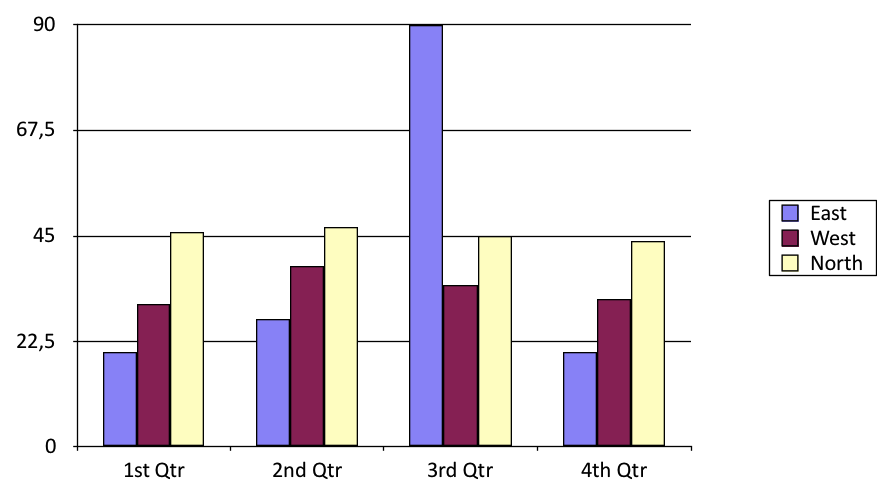Quality management tools and management is a systematic business approach applied in an organization. Quality management tools and techniques influence the relationship between the organization, her products and the customer.
Adequate implementation of quality management tools improves the team spirit, skills, invention, and satisfaction of the goods, services and the customer. Competitive advantage guarantees the sustainability of a company’s product and this is made possible with quality management tools and technique (Bunney, 2010).
The goal of the firm is to correlate successful business patterns that enhance productivity. Quality management technique involves managing the workforce to efficiency, while maintaining coordination and standards. Each employee must be trained by experts regularly to encourage job specialization.
Regular training will empower, educate and sustain the entire staff towards problem solving and customer’s satisfaction. Each department in the organization is examined by experts, their loopholes are analyzed and economic solutions are implemented using quality management tools and technique.
Thus, quality management tools and techniques bridge the gap between client’s satisfaction and the quality of the products and services (Bunney, 2010).
Quality management tools and techniques must follow a set of principles for effective implementation. These principles include:
- Management coordination: The pivot in accessing the quality of products and services of an organization rests with the management. Business executives stand between the success and failure of their investments.
- Diagnosis: It involves data analyses and documentation. The organizational statement and previous approach are diagnosed for failures and inefficiency. This process will prepare the company for the next phase.
- Client’s orientation: The major need for quality management hinges on customer’s satisfaction. Their existence determines the strength of the organization. The more the sales the higher the profit margin for the organization. Customer’s survey and feedback analyses are conducted regularly.
- Staff orientation: Quality management seeks to reward productive staff and this principle motivates the employees to be accountable and efficient.
- Organizational structure and consolidated improvement: The best management techniques will be based on the organizational structure of the firm. The structure determines how to place each tool during implementation. However, without continuous improvements the organization may not achieve their set goals. Thus, the company’s management must consolidate on the success of the management process for sustainability.
Dnata is an airline organization and the largest in United Arab Emirates. Dnata airline conveys passengers globally and have a strong capital base. The organization handles cargo transport, passenger flights, inbound catering services and ground cargo delivery across Asia, Europe, Africa, America and the Middle East.
Quality tools and technique involves mapping different ideas, and strategies of the organization. These ideas and problems are correlated with the organizational vision. These ideas are listed using affinity diagram. A hypothetical list for Dnata airline includes:
Dnata affinity diagram

Dnata correlation graph

Dnata airline is the largest cargo delivery firm in the UAE. The firm’s existence depends on proper implementation of quality management tools and techniques. The management divides its strategies based on values, tools and techniques. These strategies were correlated with the mission statement of the company.
To achieve an increase customer satisfaction and shareholder index, the management focused on the values that bring growth and satisfaction.
These values include commitment of all employees, making decisions based on facts and informed opinions, managerial commitment, customer-driven innovations, and continuous improvements. The values of the organization are a competitive advantage in the global market.
Incentives are given to productive employees thus, creating a comfortable environment for the employees. The management used facts to make decisions. For example, the number of cargo deliveries dropped in 2012 and the organization examined the situation with a solution.
The management lowered flight rates due to the market trend. This decision stabilized their services and increased their customer strength.
Dnata airline used quality management tools to examine the challenges of the firm. Unlike other firms, Dnata airline listed its problems using the affinity diagram, correlated its relations with profit maximization.
These tools involve careful examination of the company’s resources and a coordinated implementation of the firm’s quality management technique.
The final process involves technique implementation. The techniques employed include policy deployment, workers’ development, quality control assessment, coordinated benchmark analyses, individual assessment and quality delivery.
Top management in Dnata airline utilized the tree diagram to assign individual tasks during recessions. Questionnaires were used to learn various routes in achieving customer’s satisfaction. The tree diagram was used to assemble the challenges listed in the affinity diagram.
The mission statement shown in the digraph provided the guideline for quality management and its implementation. The matrix diagram can be used for multiple tasks. Symbols and shapes are used to denote the strength of each technique and tools. The matrix can be utilized for short and long-term process.
Dnata airline used this tool to study the four cardinal points for customer’s satisfaction. The analyses revealed the importance of low flight fares, rapid technical response, sustainability and quick service delivery. Matrix diagram was used in allocating the strength of these cardinal points based on customer’s satisfaction.
Dnata airline used Pareto technique to examine the firm’s challenges based on their importance. With customer’s satisfaction in mind, Pareto technique addresses urgent problems that affect the delivery of Dnata airlines.
The histogram is another quality management tool used to solve the problems with service distribution. The chart revealed the nature of service distribution in the organization.

The major obstacle in quality management implementation is the resource control. Most executives would prefer to use a quick solution rather than the complete implementation process. The available resources are diverted to different segments of the organization, thus limiting the success of quality management technique.
Implementation is most critical phase of the management process; the introduction of the technique would require allocation of funds for implementation. The use of charts was another obstacle for the airline.
The distribution of issues related to customer’s satisfaction could not be verified using chart diagram and this has affected their growth rate.
Finally, quality management tools and techniques create the balance between a firm’s mission statement and its quest to achieve its objectives. Management experts are employed to carry out the training of the workforce.
The implementation process determines the level of coordination between the management and her employees. Quality management tools and technique correlates the firm’s business strategy and the mission statement.
Reference
Bunney, S. (2010). The implementation of quality management tools and techniques. New York: McGraw-Hill.